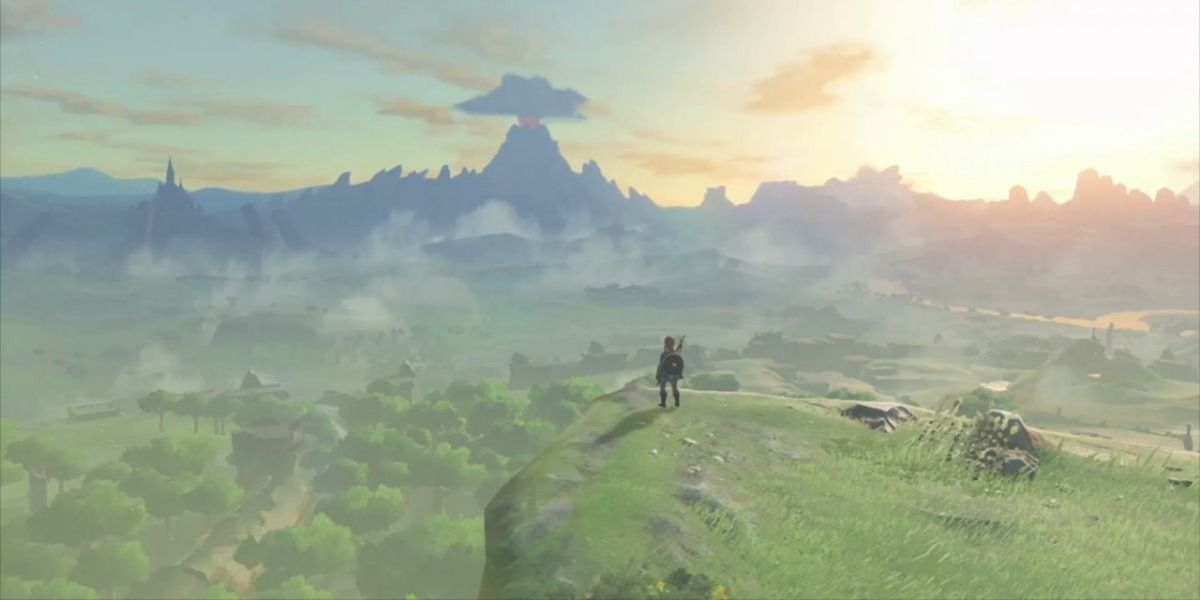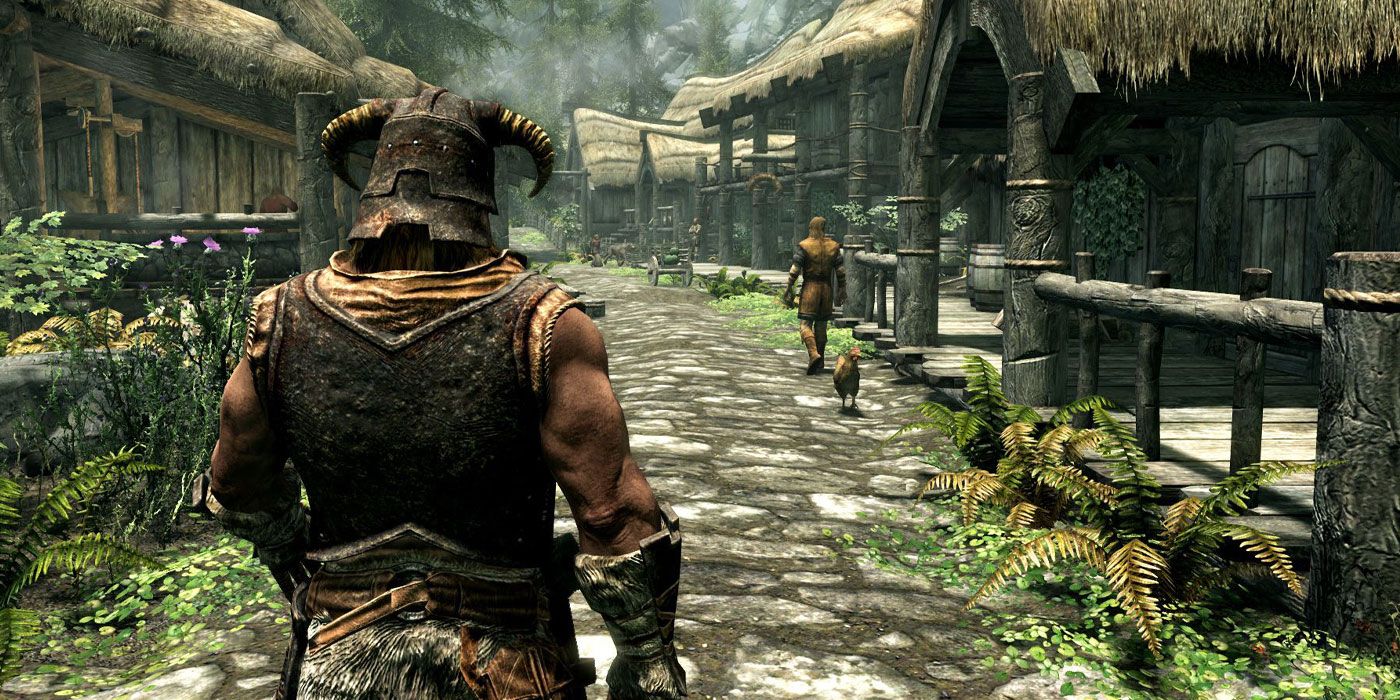Breath Of The Wild Vs Skyrim
The Elderberry Scrolls V: Skyrim took the world of gaming by storm when information technology released in 2011 and afterward established what a successful open-world looked like. Following Skyrim, many more open-globe games popped up, with several trying to replicate what information technology achieved. However, the 2017 release of open-earth gameThe Fable of Zelda: Jiff of the Wild immediately set a new standard.
Both are great open-world games in their own ways:Zelda has more of an adventure focus andSkyrim has an RPG focus. Yet, in that location are some overlapping aspects of the ii games where Breath of the Wild is superior.
The purpose of an open up-world, in theory, is to allow the player to exercise whatsoever they want and explore to their heart's content. Yet, in Skyrim traversing the map is more alike to traveling than exploring. To get to the next destination, players need to marking the location on the map and so follow a navigation bar, rather than discover the side by side bespeak of involvement through exploration. Players more than ofttimes than not await at their HUD while they motility, in the process missing all the trivial details of the intricately-designed world in a rush to achieve the next location.

Breath of the Wild avoids this destination-focused traveling by designing the globe to encourage discovery and appreciation of the journey. Instead of map locations being provided, players have to survey the area and determine on an interesting location to investigate. In fact, the game can even be completed with the HUD off, as at that place's always NPCs to give hints that aid in discovery without hand-holding, something even Skyrim's predecessor, Morrowind, did well despite releasing a decade earlier.
Instead of having a banal, realistic earth similar Skyrim, Jiff of the Wild takes liberties and has cool but interesting things pinnacle out from the horizon or lie around in the center of nowhere, nudging the players to investigate. In an odd way, Jiff of the Wild fifty-fifty feels more than immersive than the more grounded world of Skyrim considering of small-scale details: Wearing metal during a storm can lead to electrocution, walls are glace to climb when it rains and cold terrains strength Link to dress appropriately.
Another gene contributing to immersion lies in the fashion the two titles approach traversal. In Jiff of the Wild, traversing the map is fun. There are options to climb, clide, ride a horse, or even ski on the shield. In Skyrim, traversal is dull, especially when players don't accept a horse.
With a greater focus on going from one quest point to some other, players may ofttimes experience compelled to rely on the fast travel mechanism instead of immersing themselves in the open-world.Breath of the Wild also has fast travel, but players may feel more compelled to climb a mountain and glide from the top than to utilise the immersion-breaking feature.

Another plus of Breath of the Wild is the multiple solutions information technology offers for problems. Players tin get over a river by cut a tree to form a bridge, swimming through it, or climbing a mountain instead. They can defeat an enemy by rolling a boulder at them or by setting their army camp on fire while they're asleep. It doesn't only offer thespian liberty for what to do -- similar Skyrim -- but also how to do it. These elements create a wonderful and rich world that convinces the players to explore every corner of information technology and to besides defend information technology from Ganon.
In stark contrast, Skyrim's globe feels aesthetically bland and non something worth saving from Alduin. Notwithstanding, while Skyrim does feel like a grind during the in-between from one quest to another, the quests themselves are fantastic and something Breath of the Wild is underdeveloped in. While Skyrim'south quests pb players into discovering engaging subplots or lore, Breath of the Wild is near barren in this section. Many of its quests lead to uninspiring rewards, such s a Korok seed or a breakable new weapon. While both titles struggle in telling a main story worth playing, Skyrim's side stories are definitely some of the highlights of the game.
However, despite of this lack of NPC stories and globe-edifice lore, it would be unfair to call Zelda'south world empty in content. Sure in that location are bottom quests, NPCs and villages in comparison to Skyrim -- fifty-fifty though the former is larger -- but the the sheer size of the game in comparison to its content serves a different but very vital purpose, which is the sense of awe and adventure.
If the Breath of the Wildsequel can maintain that feeling while yet providing more lore and side-stories for quests -- something its predecessor, Majora's Mask, did excellently -- it might even surpass Breath of the Wild. The Elder Scrolls VI, on the other manus, might benefit from relying less on the HUD elements and more than on creating invisible directions within the design of its world. It seems both games accept a little something they could larn from the other.
Source: https://www.cbr.com/zelda-breath-of-the-wild-versus-elder-scrolls-skyrim/

0 Response to "Breath Of The Wild Vs Skyrim"
Post a Comment